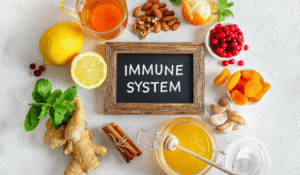In today’s fast-paced world, women often juggle multiple tasks and responsibilities, and the importance of health is often overlooked. However, a preventive approach can help you regain control of your health and transform it from a passive burden to a proactive source of strength. Instead of waiting for symptoms to manifest, this approach helps you build a strong foundation for well-being at every stage of life. The first step to a truly long and healthy life is understanding how variables like hormones, genetics, and lifestyle influence a woman’s health.
This article goes beyond general advice and offers comprehensive, practical guidance tailored to women’s needs. We explore evidence-based strategies for physical, mental, and hormonal health. These strategies provide you with a complete prevention plan to take control of your health and build a vibrant, healthy future.
The Basics of a Proactive Health Checkup:
Scheduled, regular health checkups are the most important part of staying healthy. They’re more than just items to check off a list; they are crucial tools for identifying problems early, when they are often easiest to resolve. For women, this process begins with a health screening, which provides a comprehensive overview of their reproductive health and overall well-being. Following the age recommendations for mammograms is crucial for detecting breast cancer. Pap smears and HPV testing are also crucial for preventing cervical cancer.
Monitoring your blood pressure, cholesterol, and blood sugar levels to understand your risk of diabetes is just as important as paying attention to your gynecological health. A bone density scan (DEXA) around menopause is crucial for determining your risk of osteoporosis. Building a strong, open relationship with your primary care provider and gynecologist ensures that this screening program is tailored to your family history and risk factors, making your care plan as unique as you are.
A Lifelong Journey to Hormonal Health:
From puberty through childbearing to perimenopause and menopause, a woman’s body undergoes many hormonal changes. The key to prevention lies in understanding and supporting women during these periods. Tracking your menstrual cycle can provide important information about your overall health, such as signs of thyroid disease or polycystic ovary syndrome (PCOS). Being proactive during the transition to perimenopause is crucial.
Talk to your doctor about your symptoms, such as irregular periods, sleep problems, and mood swings, and learn how to manage them, for example, through lifestyle changes or hormone therapy. It’s also important to support your hormonal health naturally. This means managing chronic stress (which can disrupt cortisol levels) and ensuring you get enough important minerals like magnesium, calcium, and vitamin D to maintain bone health as estrogen levels decline.
Develop a Diet Plan to Stay Active and Healthy:
Nutrition is more than just food; it’s essential medicine for maintaining a healthy female body. A dietary approach to disease prevention focuses on a balanced diet that helps maintain energy, hormonal balance, and long-term disease prevention. To prevent anemia, eat plenty of iron-rich foods, including lean red meat and lentils, especially during menstruation. To strengthen bones, ensure you get enough calcium and vitamin D through dairy products, leafy greens, and safe sunlight exposure.
Add healthy fats like avocados, almonds, and olive oil to your diet. These fats are essential for hormone production and brain health. Most importantly, eat unprocessed, fiber-rich foods like fruits, vegetables, and legumes. These foods contribute to healthy gut flora, regulate your blood sugar levels, and help you maintain a healthy weight. It’s not about following a strict diet but about providing your body with the right nutrients to function optimally.
Developing a Holistic Fitness Approach:
Exercise is an important part of maintaining excellent health, but how you exercise is just as crucial. Women’s daily workouts should focus on three key areas: strength, heart health, and flexibility. Weight-bearing and strength training are crucial for increasing bone density and muscle mass, which typically decline with age. These activities also boost metabolism and prevent osteoporosis. Cardiovascular exercise, such as brisk walking, cycling, or swimming, strengthens the heart and improves circulation. But it’s equally important to incorporate restorative activities like yoga or Pilates, which improve flexibility and balance, prevent falls, and help reduce stress. Most importantly, listen to your body and develop a routine you enjoy and can maintain. This way, fitness becomes a lifelong companion, not a requirement.
Prioritize Mental and Emotional Health:
Preventive healthcare is incomplete without mental health. Women are more prone to anxiety and depression than men, so mental health isn’t a luxury; it’s a necessity. Prioritize sleep, as insufficient sleep can significantly impact your mood, cognitive function, and hormonal balance. You need to actively develop some coping tools. These can include mindfulness meditation, deep breathing exercises, writing, or simply setting clear boundaries for your time and energy. Nurturing your social connections is crucial. Strong, supportive relationships help you manage stress and are a favorable indicator of your long-term health and well-being. Understanding the close connection between your emotional and physical health allows you to treat yourself with kindness.
Conclusion:
One of the best things women can do for themselves is develop a preventative health mindset. This is a lifelong commitment to taking care of your health through proactive medical care, understanding your hormones, a healthy diet, healthy exercise, and attention to your mental health. This approach recognizes that you know your body best and that simple, regular activities you undertake now can have a significant impact on your future health. This journey isn’t about striving for perfection; it’s about making choices based on your needs. By taking control of your health, you prevent disease and create a life full of vitality, resilience, and joy, giving you the strength and energy to fully enjoy every chapter of your life.
FAQs:
1. When should women start getting mammograms?
Most guidelines recommend annual or biennial checkups between the ages of 40 and 50. However, consult your doctor to discuss your family and personal medical history to determine the best time for your checkup.
2. Which nutrients are most important for women’s health?
Iron, calcium, vitamin D, folic acid (especially during childbearing), and omega-3 fatty acids are all important nutrients that help meet various physiological needs.
3. What natural methods can help alleviate perimenopausal symptoms?
Lifestyle changes, such as regular exercise, a balanced diet rich in phytoestrogens, stress management techniques, and avoiding caffeine and alcohol, can effectively alleviate symptoms.
4. Why is strength training so important for women?
It builds muscle, speeds up metabolism, strengthens bones, prevents osteoporosis, improves posture, and increases functional strength for daily activities, allowing you to remain active as you age.
5. How often should I see my doctor for a checkup?
Most people should have an annual checkup. This includes a physical exam, breast exam, pelvic exam, and discussing any health conditions or necessary tests with your doctor.




